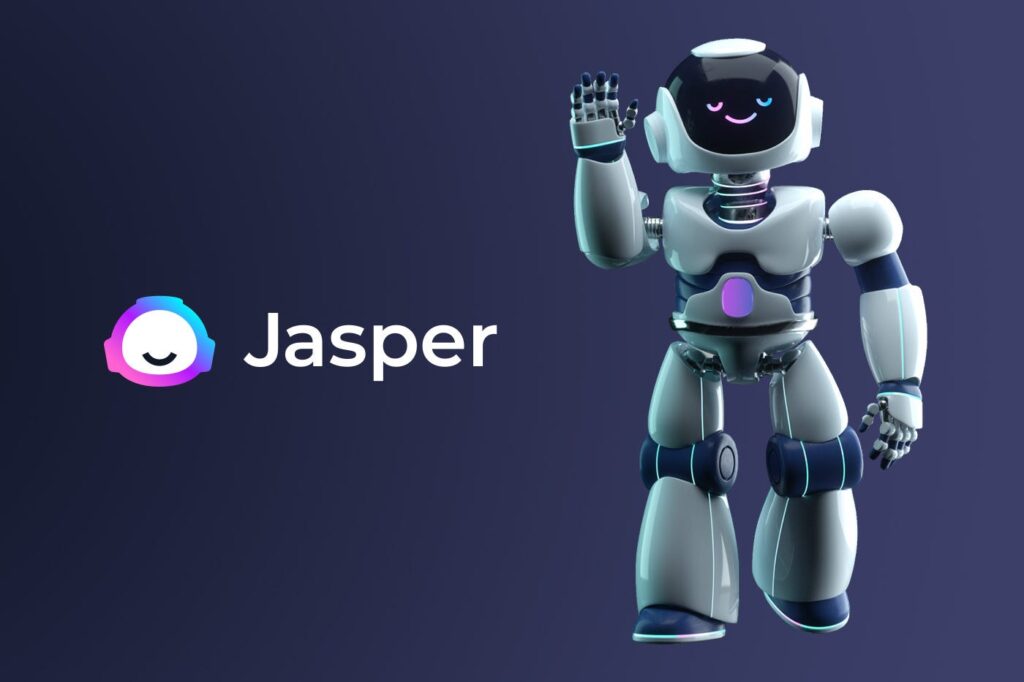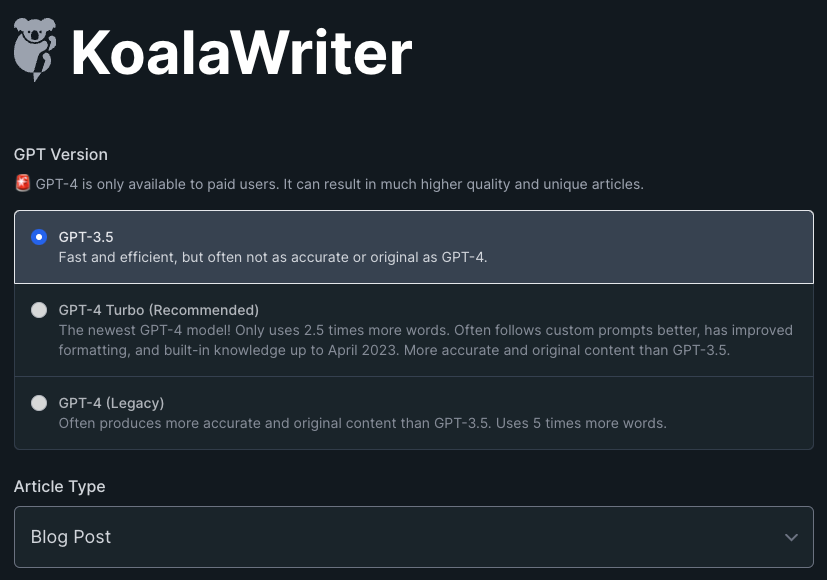The top AI writing tools for SEO are:
- Jasper
- Anyword,
- Surfer
- Copy.ai
- Writesonic
When I first started building my online business, I felt like I was constantly running to catch up with content demands. You know the drill, you need articles that rank, posts that connect with people, and messaging that stays true to your brand. Doing all of that on your own can be exhausting. That’s why I started testing AI writing tools. Most were just okay, but a handful became game-changers for me.
With the right tools, you can keep your publishing consistent, cut your turnaround times, and stay focused on strategy, growth, and connecting with your audience. The trick is using AI as a partner, not a replacement. You still bring the personality, the insights, and the direction. The AI just helps you get there faster.
Let me walk you through the ones I’d actually recommend to a friend. These are the top AI writing tools for SEO I’ve personally used, and they’ve made a real difference in scaling my content and keeping my online business moving forward.

Table of Contents
Top AI Writing Tools for SEO #1: Claude
Claude is an AI writing model built by Anthropic that’s designed to handle complex topics with clarity. It’s known for producing well-structured, detailed content that doesn’t feel overly mechanical. The tool keeps tone consistent and integrates keywords naturally, which makes it ideal for long-form SEO content. I’ve found it to be especially strong when accuracy and depth matter.
I first tried Claude for a blog post I had been avoiding because the research felt overwhelming. I provided it with my notes and sources, and it returned a draft that was both clear and engaging. It saved me hours I would have spent trying to organize everything myself. That draft ended up being one of my most read posts of the year.
For entrepreneurs, Claude can help you publish authoritative content without losing the human element. It allows you to increase output without diluting quality, which is essential for building credibility. Consistent, in-depth articles position you as an expert and keep your audience coming back. In the long run, that authority supports organic traffic growth and higher conversions.
Try This: Pick a complex topic in your niche and feed Claude your research notes. Use its draft as a base, then edit to add your personal insights.
Top AI Writing Tools for SEO #2: ChatGPT
ChatGPT is a conversational AI that can produce almost any type of written content you need. From blog articles to ad copy, email sequences, and product descriptions, it adapts to different formats with ease. You can use it for brainstorming, outlining, or creating full drafts. It’s especially useful for breaking through creative blocks.
I’ve used ChatGPT to plan entire content clusters around a target keyword. It helps me outline pillar articles and spin-off posts in minutes instead of days. Sometimes I’ll have it create rough drafts so I can focus my time on refining instead of starting from scratch. That approach has sped up my publishing schedule without sacrificing quality.
If you’re managing your own marketing, ChatGPT can help you keep your content pipeline flowing. It makes idea generation effortless and shortens the gap between concept and published post. That consistency not only helps with SEO but also builds trust with your audience. The more present you are, the more likely people are to engage and convert.
Try This: Ask ChatGPT for ten blog ideas in your niche, then have it outline the top three.
Top AI Writing Tools for SEO #3: Surfer
Surfer is an SEO-focused platform that combines AI writing with real-time optimization scoring. It provides outlines based on search engine data, content structure recommendations, and keyword usage tracking. This makes it easier for users to match or surpass top-ranking pages.
It made the list because it does more than just generate content. Surfer ensures that every draft is guided by actual SERP analysis, which is essential for competitive niches. Its optimization feedback loop is a major advantage for anyone who wants measurable improvements in rankings.
Top AI Writing Tools for SEO #4: Jasper
Jasper is an AI writing platform designed for marketers and content creators who need to produce at scale. It offers more than eighty templates and a brand voice feature to keep tone consistent. It’s great for creating everything from blog posts to ad copy without starting from scratch. You can also integrate it with Surfer for added optimization.
I’ve used Jasper when managing multiple campaigns across different channels. The brand voice feature ensures that whether I’m writing a blog post or a Facebook ad, the style feels consistent. This is critical when your audience interacts with your brand in multiple places. It’s saved me hours of editing and rewrites.
Jasper can help you maintain a cohesive brand presence while increasing content output. This consistency strengthens your identity and builds recognition over time. With the integration options, you can also make sure your content is both engaging and optimized for search. That combination is powerful for growth.
Try This: Train Jasper with your brand voice, then create three types of content: a blog post, an ad, and an email, using the same campaign theme.
Top AI Writing Tools for SEO #5: Koala
Koala is a simple, fast AI writing tool built for ease of use. It produces SEO-friendly articles without complicated setup or long learning curves. This makes it ideal for quick-turn projects. Sometimes speed matters more than advanced customization.
I use Koala for niche posts, quick updates, or seasonal content that needs to be published fast. It’s not the tool I use for deep, research-heavy work, but it’s perfect for keeping my publishing schedule consistent. This has helped me capture timely search traffic without sacrificing quality. It fills in the gaps when I’m short on time.
If you run a business, Koala can help you avoid long breaks between content drops. Staying active signals to search engines that your site is fresh and relevant. It also keeps your audience engaged with regular updates. Even small pieces can maintain your visibility and momentum.
Try This: Use Koala to draft a 700-word blog post on a trending topic in your niche. Publish it within the same day.
Top AI Writing Tools for SEO #6: Anyword
Anyword is an AI platform that combines SEO writing with conversion-focused analytics. It predicts how well your copy will resonate with your target audience. This helps you refine both keyword targeting and persuasive elements. It’s particularly valuable for sales-driven content.
I’ve used Anyword to fine-tune product descriptions and landing pages. Seeing a score for likely engagement before publishing has helped me make small changes that lead to better results. It takes the guesswork out of balancing SEO with conversion goals. This means my content works harder from the moment it goes live.
Anyword gives you option to improve performance without major rewrites. You can quickly identify where your messaging falls short and fix it. This is a faster, more data-driven approach to improving ROI from content. Over time, those improvements add up to significant gains.
Try This: Run your top-performing sales page through Anyword and adjust the copy based on its suggestions.
Top AI Writing Tools for SEO #7: INK
INK is an AI writing assistant that gives you real-time SEO and readability feedback. It helps you optimize as you write, saving time in the editing stage. This ensures your content is ready for both search engines and readers. You don’t have to trade creativity for technical compliance.
I use INK when I want to focus on writing freely but still stay on track with optimization. The feedback is straightforward and actionable, not overwhelming. This has made my workflow smoother and my content stronger from the start. It’s like having an SEO editor built into the writing process.
For your business, INK can help maintain a higher standard of content without slowing you down. The more consistently you produce optimized posts, the better your search rankings and engagement will be. It’s a simple way to build good SEO habits into your daily workflow. Over time, those habits compound into real growth.
Try This: Draft your next blog post in INK and adjust it in real time until you hit a high SEO score.
Top AI Writing Tools for SEO #8: Hypotenuse.AI
Hypotenuse.AI is designed for eCommerce content creation. It generates SEO-friendly product descriptions, catalog entries, and even matching product images. This helps keep your store’s content consistent and professional. It’s ideal for large or growing product catalogs.
I’ve used Hypotenuse to launch new product lines without drowning in copywriting work. The descriptions it produces are clean, clear, and aligned with my brand style. Having consistent, optimized copy for every product has improved both search performance and customer trust. That’s made it easier to scale my store quickly.
For entrepreneurs selling online, Hypotenuse can drastically cut the time needed to go to market. More listings mean more opportunities to rank and sell. With quality control built in, you can expand faster without lowering your standards. That’s a big win when you’re competing in a crowded space.
Try This: Use Hypotenuse to rewrite five existing product descriptions, then track the impact on traffic and sales for the next month.
Top AI Writing Tools for SEO #9: WordAI
WordAI is a rewriting tool that refreshes and improves existing content. It keeps the meaning intact while improving flow and eliminating repetitive phrasing. This makes old posts feel new again. It’s perfect for extending the life of your content.
I’ve used WordAI to bring older articles back into search visibility. It’s especially useful for pieces that have valuable information but are starting to slip in rankings. Updating them signals freshness to Google without the effort of starting over. That’s a smart use of time and resources.
WordAI offers a way to keep your content library working for you. You can refresh posts in bulk and maintain traffic without constant new creation. This makes your marketing more efficient and sustainable. In competitive niches, staying fresh is key to staying visible.
Try This: Choose three blog posts that have dropped in rankings over the past year. Refresh them with WordAI and republish them.
What Is Google’s Stance On Ai Tools For Seo Content Writing?
Google’s stance on AI tools for SEO content writing is that AI-generated or AI-assisted content is allowed if it meets their quality guidelines. The company has stated that appropriate use of AI or automation is not against its policies as long as the main purpose is to provide helpful, valuable, and original information.
AI can be used for tasks like creating outlines, improving readability, or drafting articles, but the content must be reviewed and refined to ensure it meets Google’s standards for expertise, experience, authoritativeness, and trustworthiness.
What Google does not allow is using AI to mass-produce low-quality or unoriginal text solely to manipulate search rankings. This practice, known as scaled content abuse, can lead to penalties under Google’s spam policies. The March 2024 core update emphasized this point, and the 2025 Search Quality Rater Guidelines confirm that content with little effort or added value may receive the lowest quality rating.
What Is The Future Of Seo With AI?
The future of SEO with AI is expected to focus on creating higher-quality, user-focused content at scale while improving efficiency in keyword research, optimization, and performance tracking. Some of the top AI writing tools for SEO are already streamlining the process of analyzing search intent, generating topic ideas, and structuring articles to match what users want.
This trend will continue as AI models become better at understanding context, tone, and semantic relationships between words. As a result, content strategies will shift toward meeting very specific user needs rather than relying on broad keyword targeting alone.
AI will also play a larger role in personalization and predictive search optimization. Search engines are increasingly using AI to evaluate user behavior, dwell time, and engagement signals, which means SEO content will need to be more relevant and interactive to stand out.
Future AI-assisted SEO will likely combine automated content generation with real-time optimization tools that adjust copy, headings, and metadata based on live performance data. Businesses that embrace AI as a creative and analytical partner, rather than a full replacement for human oversight, will have the advantage in producing content that ranks well and genuinely serves their audience.
Does Ai-Generated Content Hurt Seo?
AI-generated content does not automatically hurt SEO, but it can if it is low quality or created purely to manipulate search rankings. Google has made it clear that what matters is the value and usefulness of the content, not the method used to produce it.
If AI is used to create well-researched, original, and engaging material that answers user queries effectively, it can perform just as well as human-written content in search results. The key is to ensure the output meets Google’s standards for expertise, experience, authoritativeness, and trustworthiness.
Where AI-generated content can hurt SEO is in cases of scaled content abuse or when the writing lacks depth and originality. Thin, repetitive, or inaccurate AI copy risks being flagged by Google’s algorithms and could receive lower rankings.
To avoid this, AI content should be fact-checked, edited for clarity, and optimized for both search intent and user experience. When used as a tool to enhance rather than replace human judgment, AI can support strong SEO rather than harm it.
Does Google Penalize Ai Written Content?
Google does not penalize AI-written content simply because it is produced with AI. The deciding factor is whether the content meets Google’s quality and spam guidelines. If AI is used to create helpful, original, and well-optimized material that serves the reader’s needs, it can rank as well as human-written content. Google has confirmed that appropriate use of automation or AI is not against its policies, provided the intent is to deliver value rather than to manipulate rankings.
However, Google can penalize AI-written content if it is used for scaled content abuse or produces low-quality, unoriginal text. Content that offers little to no added value, is stuffed with keywords, or is generated without proper oversight risks being downgraded in search results. To stay compliant, AI-generated content should be carefully reviewed, fact-checked, and aligned with search intent before publishing. In short, Google penalizes poor content quality, not the use of AI itself.
Conclusion: What Is The Best Ai Tool For Writing Seo-Rich Blog Content?
The best AI tool for writing SEO-rich blog content is Jasper. It is widely recognized for its ability to produce long-form, keyword-optimized articles that are both engaging and structured for search engine performance. TechRadar’s 2025 review ranked Jasper among the top performers for content marketers because it supports over 80 templates, integrates with Surfer SEO for real-time optimization, and helps maintain a consistent brand voice across all content.
Users report that Jasper can reduce content creation time by more than 50% while improving readability scores, making it a strong choice for producing high-quality blog posts that rank.
Check out our other reviews that will help you grow your knowledge in building a thriving business online.







0 Comments